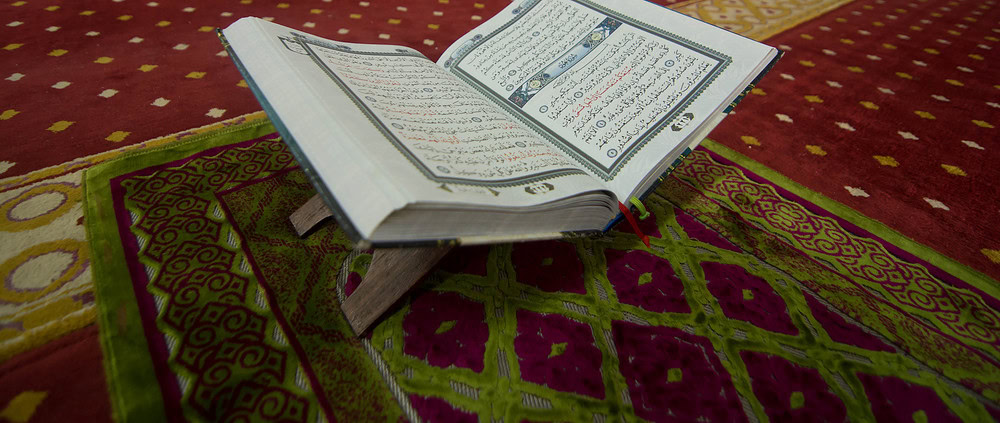Is Looking at the Quran (Mushaf) during Tarawih Prayers and Other Prayers Permissible?
Answered by Shaykh Anas al-Musa
Question
Is looking at the Quran (Mushaf) during Tarawih prayers and other prayers permissible?
Answer
In the name of Allah, the Most Gracious, the Most Merciful.
In the Hanafi School, specific rulings apply when a worshipper recites the Quran while looking at the Mushaf during the prayer.
There is a difference of opinion in the rulings between Imam Abu Hanifa and his two companions on the matter.
Abu Hanifa (Allah have mercy upon him) was of the opinion that the worshipper is not allowed to read from the Mushaf – if he does, his prayer is invalidated. This is regardless of whether he read a little or a lot; he was an imam or read on his own; it was an obligatory prayer or a voluntary one.
This ruling applies to those who can only read from the Mushaf because they have not memorized the Quran.
The Hanafis differ regarding the reason behind this ruling. Some said that carrying the Mushaf, looking into it, and turning its pages involves moving a lot, thus invalidating the prayer. Since recitation is learned from the Mushaf, it is as though he is learning the Quran during the prayer.
The prayer is only invalidated according to the Hanafis when the reciter has not memorized what he is reciting and recites while holding the Mushaf.
If someone has memorized the Quran and looks at it without holding it, his prayer is not invalidated. This is because this type of recitation is what he has memorized instead of learning from the Mushaf.
Merely looking at the Mushaf without holding it does not invalidate the prayer because there is no conclusive reason for its invalidation.
The two companions believe it is permissible for a worshipper to look into a Mushaf while praying because looking into a Mushaf is an act of worship. Nonetheless, in this instance, it is disliked due to its resemblance with the people of the book.
To conclude, there is no harm in reciting from the Mushaf during the prayer for those who have not memorized the Quran and desire prolonged standing and gaining reward in voluntary prayers such as Tarawih and Tahajjud. This is based on the stance of the two companions and the Shafi’is. These are voluntary prayers, and there is more flexibility in them compared to the obligatory prayers, and Allah knows best.
May the blessings and peace of Allah Most High be upon our Master and Prophet Muhammad, his Family, and Companions.
[Shaykh] Anas al-Musa
Shaykh Anas al-Musa, born in Hama, Syria, in 1974, is an erudite scholar of notable repute. He graduated from the Engineering Institute in Damascus, where he specialized in General Construction, and Al-Azhar University, Faculty of Usul al-Din, where he specialized in Hadith.
He studied under prominent scholars in Damascus, including Shaykh Abdul Rahman al-Shaghouri and Shaykh Adib al-Kallas, among others. Shaykh Anas has memorized the Quran and is proficient in the ten Mutawatir recitations, having studied under Shaykh Bakri al-Tarabishi and Shaykh Mowfaq ‘Ayun. He also graduated from the Iraqi Hadith School.
He has taught numerous Islamic subjects at Shari‘a institutes in Syria and Turkey. Shaykh Anas has served as an Imam and preacher for over 15 years and is a teacher of the Quran in its various readings and narrations.
Currently, he works as a teacher at SeekersGuidance and is responsible for academic guidance there. He has completed his Master’s degree in Hadith and is now pursuing his Ph.D. in the same field. Shaykh Anas al-Musa is married and resides in Istanbul.
